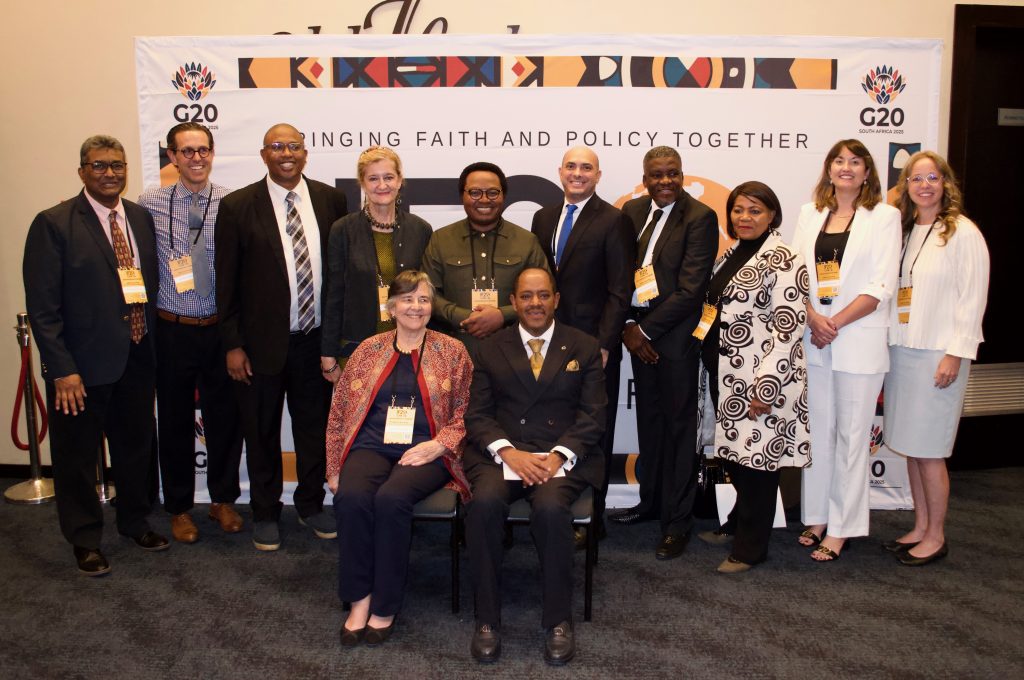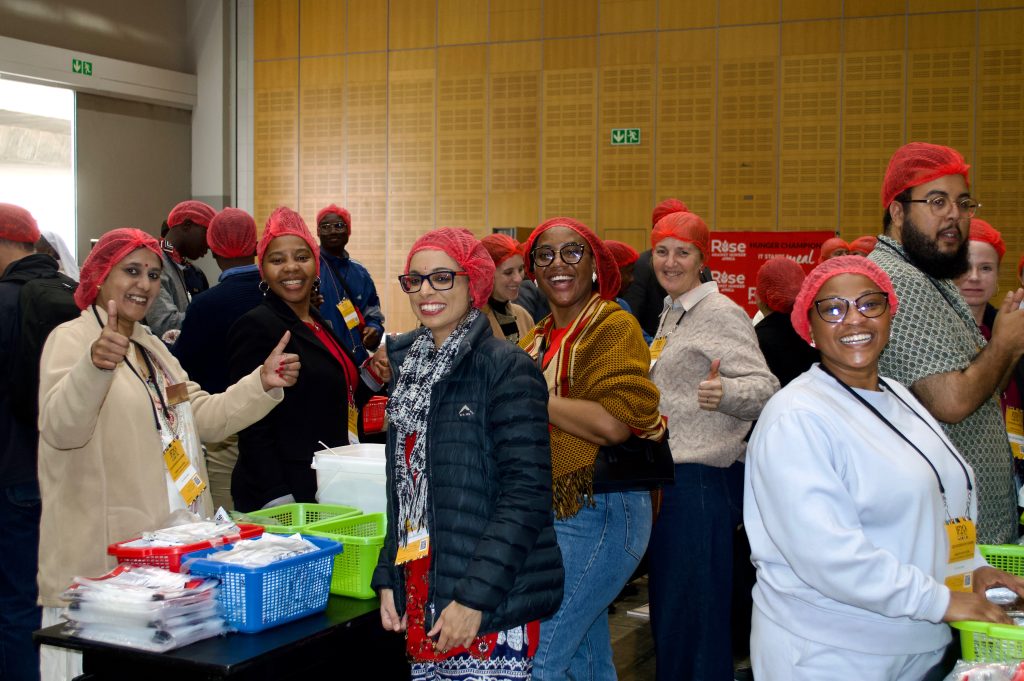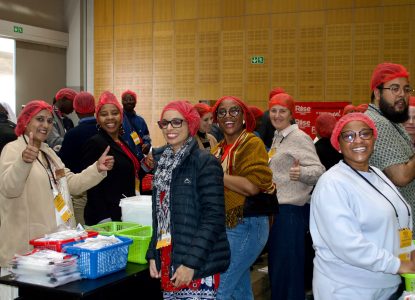By Luisa Banchoff
– – –
For eleven years, the G20 Interfaith Forum has been a space for leaders from faith communities, civil society, and government to speak prophetically about the challenges facing the most marginalized and excluded members of our societies. The second day of this year’s forum began with an exploration of this history and a call to follow in the footsteps of those who laid the foundations of our efforts.

Dr. Renier Koegelenberg, Director of the Cape Development and Dialogue Centre Trust, began the morning with an overview of the interfaith movement in South Africa, which mobilized to combat apartheid and later played a major role in addressing HIV/AIDS. Katherine Marshall, Vice President of the G20 Interfaith Forum Association, spoke of the history of the IF20 and its ongoing mission to ensure that the most vulnerable communities remain on the G20 agenda. Dr. Rodrigo Alves, Professor at the Federal University of Uberlândia, shared how advocacy efforts at last year’s IF20 in Brazil directly shaped language used in the G20 social declaration and leaders’ final declaration. Video messages from Bartholomew I, Ecumenical Patriarch of Constantinople, Ela Gandhi, a South African peace activist and former MP for Kwazulu-Natal, and Sulak Sivaraksa, a Thai intellectual and activist, called on delegates to stand against the trend of “de-solidarization” in our world, calling on faith leaders to strengthen solidarity through action.
The plenary discussion applied this spirit of advocacy and action to the topic of education. The panel, composed of educators, government officials, and non-profit leaders, emphasized that education must go beyond simply imparting book knowledge. Rather, schools must focus on holistic education for children and young people, teaching the skills of building friendship and community, modeling the values of respect and understanding, and fostering critical thinking and ethical decision-making. Maria Lucia Uribe Torres, Executive Director of Arigatou International, emphasized that “children must learn that we hold the lives of others in our hands, and what we do impacts the lives of others.” Prof. Muhammed Haron, Head of the Office of Deputy Minister of Social Development for South Africa, emphasized the particular need for this approach in South Africa, where the “lopsided” education landscape has left little space for learning about moral and social values.

After lunch, delegates took the opportunity to put such values into action through a community service project hosted by Rise Against Hunger, Islamic Relief, and Sewa International South Africa. Delegates filled a hall of the Cape Town International Convention Centre, donning red hair nets and forming assembly lines around ten long tables. Their mission: package bags of dry ingredients for rice and soya stew. Not just a few hundred meals, but over 30,000. The delegates did it under two hours filled with upbeat music, abundant smiles and laughter, the occasional spilled handful of rice, and good company.
– – –
Luisa Banchoff served as a research and report writer for the World Faiths Development Dialogue. She graduated summa cum laude from Princeton University with a B.A. in religion and earned a master’s degree in social anthropology from the London School of Economics.


